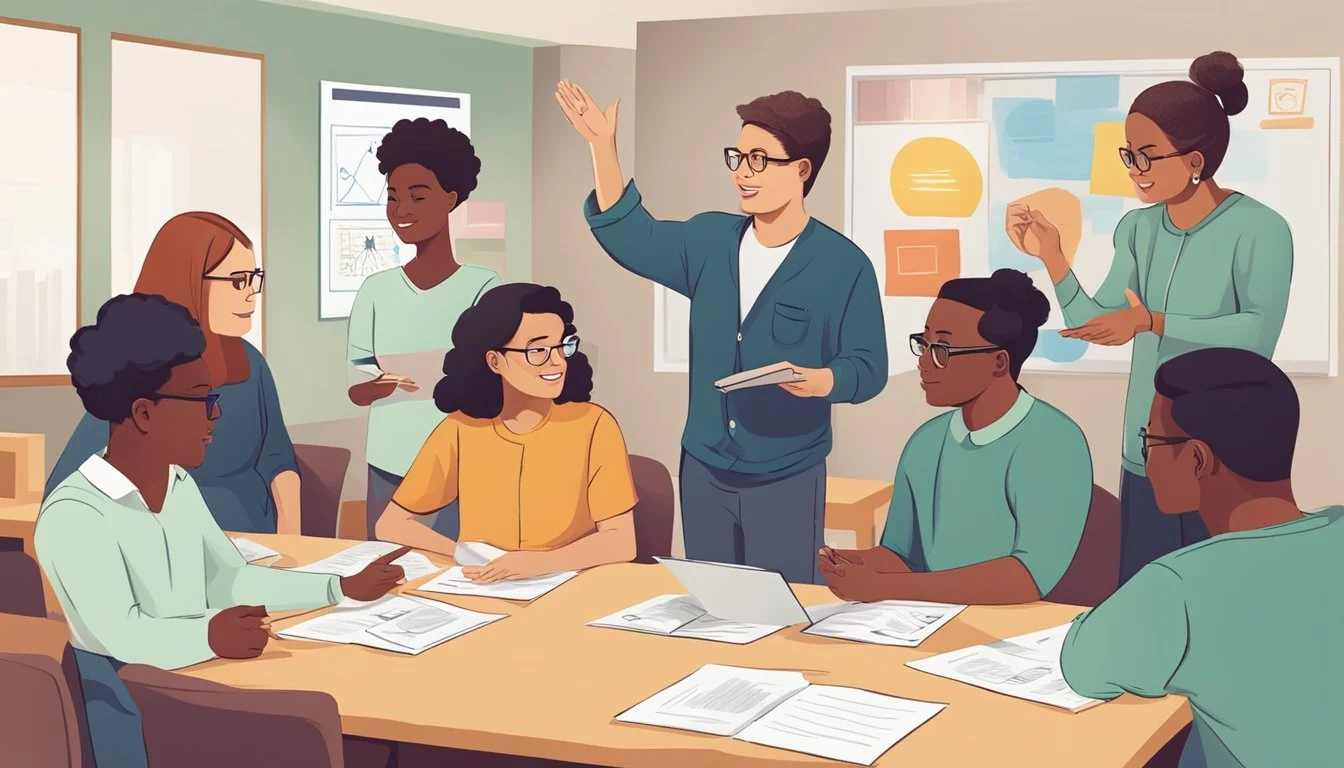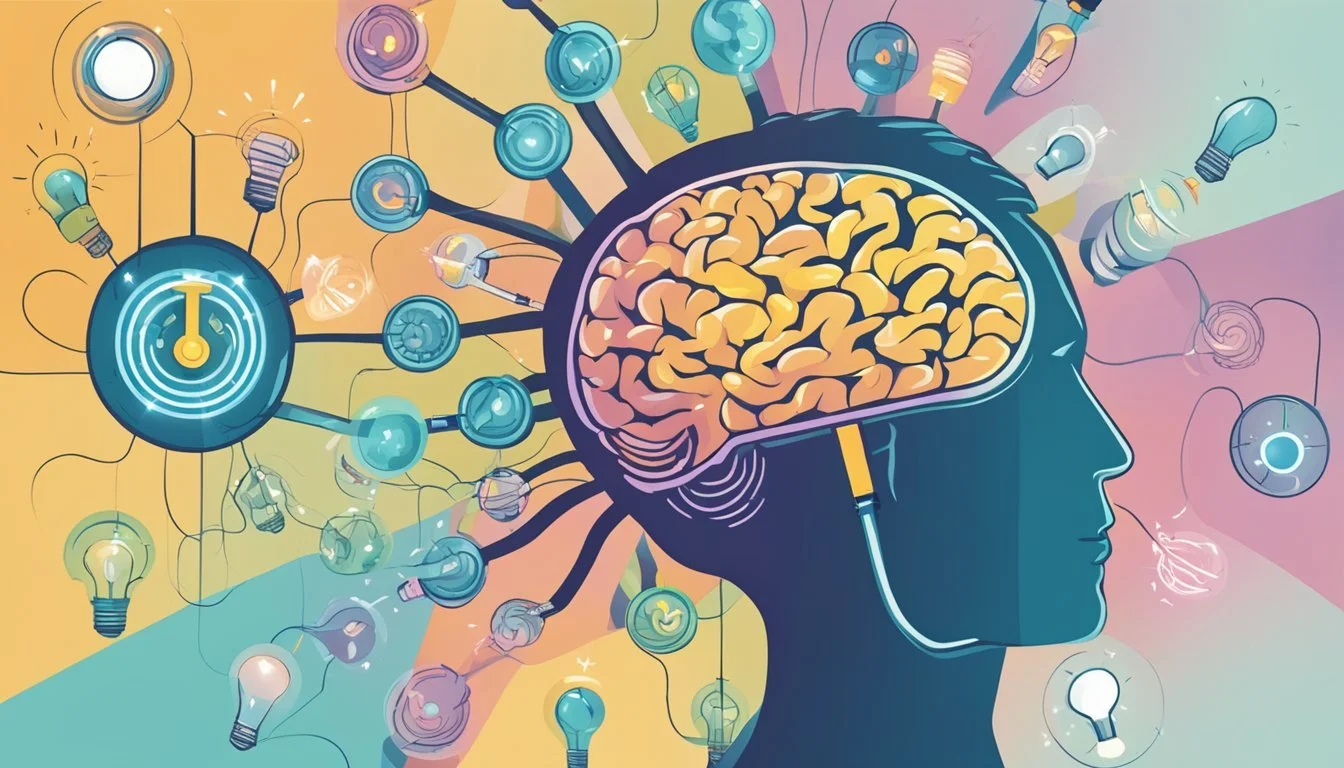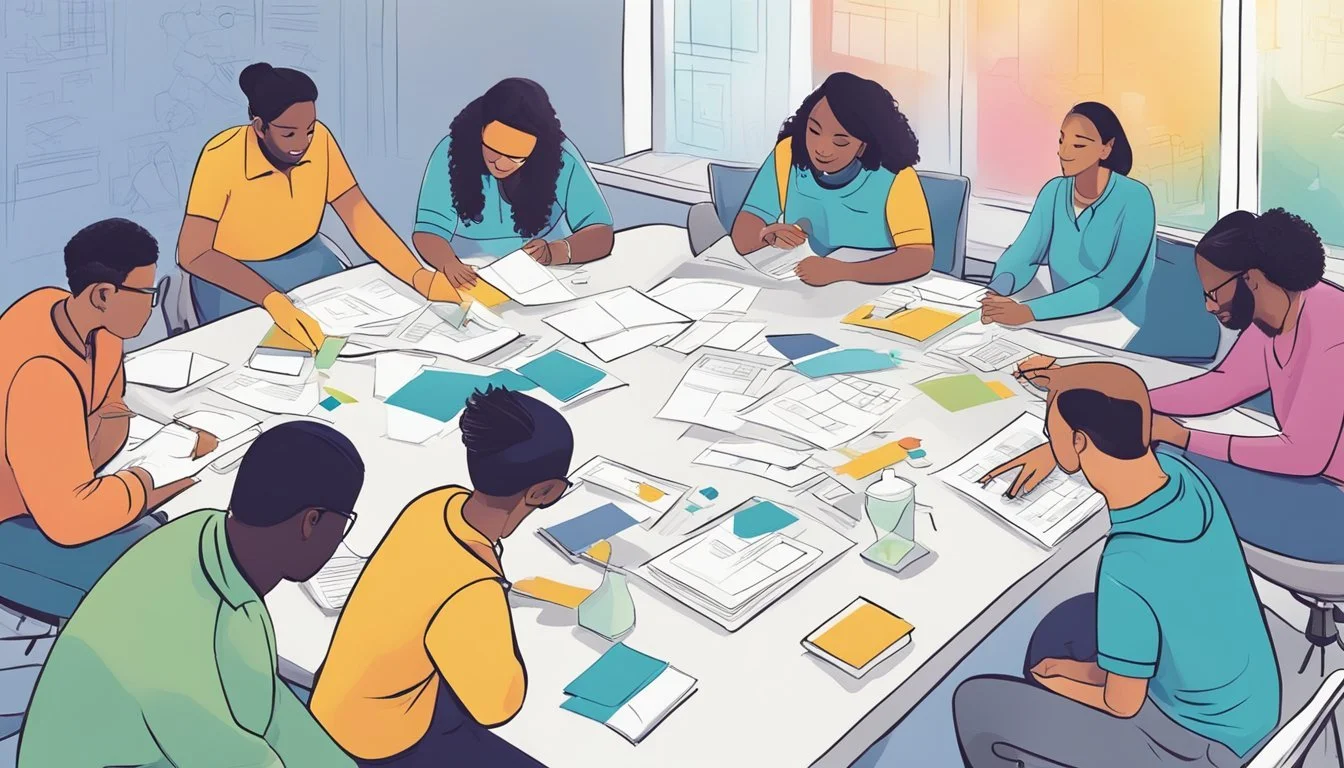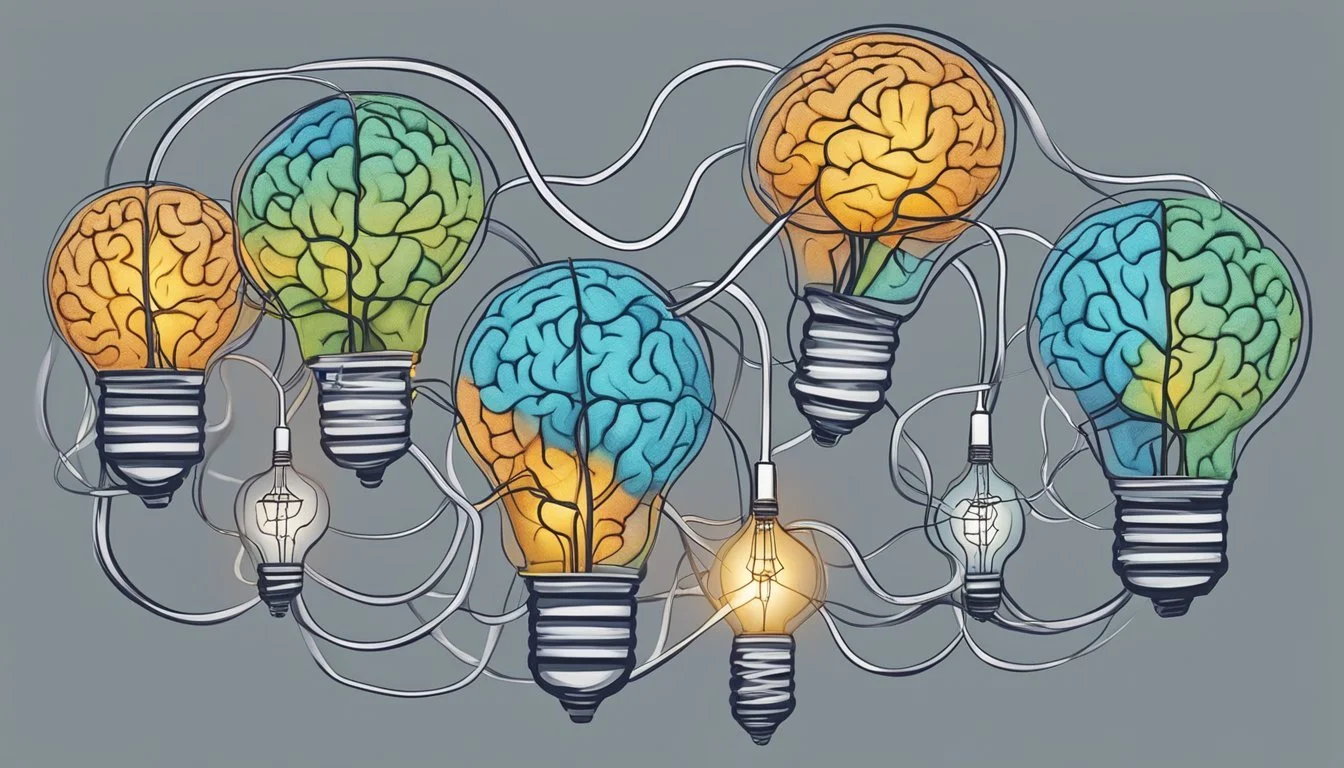10 Ways to Use Your Intelligence to Benefit Others
Practical Strategies for Making a Positive Impact
Intelligence is a powerful asset that can be harnessed to create positive change in the world. When individuals apply their cognitive abilities to benefit others, they contribute to the betterment of society as a whole. This article explores ten practical ways to leverage one's intelligence for the greater good.
By utilizing their intellectual strengths, people can make meaningful impacts on the lives of those around them. From offering guidance and support to developing innovative solutions for community challenges, there are numerous opportunities to use intelligence altruistically. The following strategies provide a roadmap for individuals seeking to maximize their cognitive potential in service of others.
1) Provide Mentorship
Mentorship offers a powerful way to use one's intelligence and experience to benefit others. By sharing knowledge and insights, mentors can guide less experienced individuals toward personal and professional growth.
Effective mentors listen actively and provide constructive feedback tailored to their mentees' needs. They help identify strengths and areas for improvement, offering strategies to enhance skills and overcome challenges.
Mentors also serve as role models, demonstrating emotional intelligence and resilience in the face of setbacks. This helps mentees develop crucial soft skills alongside technical expertise.
The mentoring relationship often proves mutually beneficial. Mentors can gain fresh perspectives and satisfaction from nurturing talent, while mentees receive valuable guidance and support.
By providing mentorship, individuals can create a lasting positive impact on others' lives and careers. This ripple effect extends beyond the immediate mentee, potentially influencing entire organizations or communities.
2) Volunteer for Tutoring
Volunteering as a tutor is an excellent way to use one's intelligence to benefit others. Many students, particularly those from low-income backgrounds, lack access to quality tutoring services.
By offering free tutoring, volunteers can help bridge this educational gap. They can assist students in subjects like math, science, reading, and writing, helping them improve their academic performance and confidence.
Online tutoring platforms have made it easier than ever to connect volunteers with students in need. These platforms often provide training and resources to help tutors be effective in their roles.
Tutoring not only helps students academically but can also provide emotional support and mentorship. Volunteers can serve as positive role models, encouraging students to pursue their educational goals.
The impact of volunteer tutoring extends beyond individual students. It can contribute to reducing educational inequalities and improving overall community outcomes.
Tutors with specialized knowledge can also assist students preparing for standardized tests or college applications. This guidance can be invaluable for students navigating these complex processes.
3) Offer Strategic Planning Advice
Strategic planning is a valuable skill that can benefit organizations and individuals alike. Those with strong analytical and foresight abilities can share their expertise to help others chart successful paths forward.
Effective strategic advisors focus on the big picture and broader context when offering guidance. They help identify key objectives, analyze internal and external factors, and develop actionable plans to achieve goals.
Good strategic advice considers both short-term tactics and long-term vision. Advisors can assist in setting priorities, allocating resources, and establishing metrics to track progress.
Communication is crucial when offering strategic planning input. Ideas should be presented clearly and concisely, with a focus on practical implementation. Visual aids like charts or diagrams can help illustrate complex concepts.
Strategic advisors also anticipate potential obstacles and develop contingency plans. They encourage others to think creatively about solutions and opportunities for innovation.
By sharing strategic planning skills, individuals can empower others to make more informed decisions and achieve better outcomes. This type of guidance can be particularly impactful for non-profits, small businesses, or community organizations.
4) Create Educational Content
Intelligent individuals can make a significant impact by developing educational materials. Creating high-quality content helps disseminate knowledge and empower others to learn and grow.
One effective approach is to produce online courses or tutorials. These can cover a wide range of subjects, from academic topics to practical skills. Video lessons, interactive quizzes, and downloadable resources enhance the learning experience.
Writing educational articles or blog posts is another valuable way to share expertise. Clear, concise explanations of complex topics can make information more accessible to a broader audience.
Developing educational apps or software tools can leverage technology to facilitate learning. Interactive elements and personalized feedback can engage users and improve retention of information.
Creating educational podcasts allows for in-depth discussions on various subjects. This format is particularly useful for auditory learners and those who prefer to consume content on-the-go.
Designing infographics or visual aids can help simplify complex information. These visual representations make data and concepts easier to understand and remember.
By creating educational content, intelligent individuals can contribute to lifelong learning and help others expand their knowledge and skills.
5) Support Innovation Initiatives
Supporting innovation initiatives is a powerful way to use intelligence for the benefit of others. By championing new ideas and creative solutions, individuals can drive positive change in organizations and communities.
One approach is to actively participate in brainstorming sessions and contribute thoughtful suggestions. Offering constructive feedback on proposed innovations can help refine and improve concepts.
Creating a supportive environment for experimentation is crucial. This may involve advocating for resources, time, and space dedicated to innovation projects. Encouraging calculated risk-taking and viewing failures as learning opportunities fosters a culture of continuous improvement.
Mentoring aspiring innovators is another impactful way to support initiatives. Sharing knowledge, experience, and connections can help nurture emerging talent and bring fresh ideas to fruition.
Collaboration is key to successful innovation. Facilitating partnerships between different departments, organizations, or sectors can lead to breakthrough solutions by combining diverse perspectives and expertise.
Recognizing and celebrating innovative achievements, no matter how small, reinforces the value of creativity and encourages ongoing efforts. This positive reinforcement motivates others to contribute their ideas and drive progress.
6) Engage in Thought Leadership
Thought leadership involves sharing valuable insights and expertise to inspire and guide others. By engaging in thought leadership, individuals can use their intelligence to benefit a wider audience.
Thought leaders create content that showcases their knowledge and experience. This can include writing articles, giving speeches, or producing podcasts on topics within their area of expertise.
Effective thought leaders focus on providing practical, actionable advice. They strive to solve problems and offer new perspectives that can help others in their field or industry.
Building a strong online presence is crucial for thought leadership. Social media platforms and professional networks allow thought leaders to connect with their audience and share ideas.
Collaboration with other experts can amplify the impact of thought leadership. By partnering with like-minded individuals, thought leaders can reach new audiences and generate fresh insights.
Consistency is key in thought leadership. Regular publication of high-quality content helps establish credibility and builds a loyal following over time.
7) Participate in Community Projects
Community projects offer an excellent opportunity to utilize intelligence for the benefit of others. By engaging in local initiatives, individuals can apply their skills and knowledge to address pressing issues and improve the quality of life for fellow residents.
Volunteering for community clean-up efforts allows people to contribute to environmental conservation while fostering a sense of pride in their neighborhood. Those with organizational skills can help coordinate events or manage resources for community centers and non-profit organizations.
Individuals with technical expertise can assist in developing websites or implementing technology solutions for local charities. This support can significantly enhance the reach and efficiency of these organizations.
Participating in community gardens or urban farming projects enables those with agricultural knowledge to share sustainable food production techniques. This can help increase access to fresh produce in underserved areas.
Tutoring programs provide an avenue for academically inclined individuals to share their knowledge with students who need extra support. This can have a lasting impact on educational outcomes within the community.
By actively participating in community projects, people can leverage their intelligence to create positive change and foster a stronger, more connected neighborhood.
8) Develop Problem-Solving Workshops
Problem-solving workshops can be an effective way to use intelligence for the benefit of others. These workshops bring people together to tackle complex issues and generate innovative solutions.
Workshops can focus on organizational challenges, community problems, or even global issues. They provide a structured environment for collaborative thinking and creative brainstorming.
Facilitators guide participants through various problem-solving techniques. These may include mind mapping, role-playing, or scenario analysis. Such methods help groups approach problems from different angles.
Workshops also foster teamwork and communication skills. Participants learn to listen actively, share ideas respectfully, and build on each other's suggestions. This collaborative approach often leads to more comprehensive solutions.
By organizing these workshops, individuals can leverage collective intelligence. They create opportunities for diverse perspectives to come together, potentially leading to breakthrough ideas.
Problem-solving workshops can be tailored to specific groups or issues. For example, they might address environmental concerns in a local community or efficiency challenges in a business setting.
Through these workshops, participants gain valuable skills they can apply in their personal and professional lives. This ripple effect extends the benefits of the workshop far beyond its initial scope.
9) Contribute to Research Projects
Contributing to research projects is an excellent way to use intelligence for the greater good. Individuals can participate in citizen science initiatives, which allow anyone to assist with data collection and analysis.
Many universities and research institutions welcome volunteers to help with various studies. These projects often span diverse fields like astronomy, biology, environmental science, and public health.
Online platforms like Zooniverse enable people to contribute to scientific research from home. Participants can classify galaxies, transcribe historical documents, or identify wildlife in photographs.
Some research projects require specific skills or expertise. Professionals in fields like data analysis, programming, or statistics can offer their knowledge to support important studies.
Even without specialized skills, individuals can contribute by participating in surveys or clinical trials. These efforts help researchers gather valuable data to advance scientific understanding and improve lives.
By engaging in research projects, people can help accelerate scientific progress and tackle global challenges. This collaborative approach to science harnesses collective intelligence for the benefit of society.
10) Facilitate Team Building Activities
Intelligent individuals can positively impact their workplace by organizing and leading team building activities. These exercises foster cooperation, enhance communication, and build trust among colleagues.
One effective activity is the "Personal Story" exercise. Team members share brief anecdotes about their lives, helping to forge connections and build empathy within the group.
Another useful technique is the "Emotion Wheel" discussion. Using a visual aid, teams can explore different emotions and discuss their nuances. This activity promotes emotional awareness and improves interpersonal understanding.
Feedback exercises can also be valuable. Team members practice giving and receiving constructive feedback in a safe environment. This helps develop important workplace skills and encourages open dialogue.
For remote teams, virtual icebreakers can be beneficial. The "One-Word" activity, where small groups choose a single word to describe a shared concept, encourages collaboration and creative thinking.
By facilitating these activities, individuals can use their intelligence to create a more cohesive and emotionally intelligent workplace. This leads to improved teamwork, productivity, and overall job satisfaction.
Understanding Emotional Intelligence
Emotional intelligence plays a crucial role in our interactions and relationships. It encompasses recognizing, understanding, and managing emotions effectively.
What Is Emotional Intelligence?
Emotional intelligence, often called EQ, refers to the ability to identify and regulate one's own emotions while also perceiving and responding to others' feelings. It involves self-awareness, self-management, social awareness, and relationship management.
People with high EQ can recognize their emotional states and understand how these impact their thoughts and behaviors. They excel at reading nonverbal cues and interpreting others' emotional reactions.
Key components of emotional intelligence include:
Empathy
Adaptability
Impulse control
Motivation
Developing EQ requires practice and commitment. Techniques like mindfulness meditation, active listening, and reframing situations can enhance emotional intelligence over time.
Benefits of High Emotional Intelligence
High emotional intelligence offers numerous advantages in personal and professional spheres. Individuals with strong EQ often experience more fulfilling relationships and greater career success.
In the workplace, emotionally intelligent employees:
Communicate more effectively
Handle stress better
Resolve conflicts more easily
Adapt to change more readily
Make stronger leaders
Personally, those with high EQ tend to:
Have more satisfying friendships and romantic partnerships
Cope with life's challenges more effectively
Experience less anxiety and depression
Make decisions more confidently
Research shows that EQ can be even more important than IQ in predicting success and life satisfaction. By cultivating emotional intelligence, individuals can improve their overall well-being and positively impact those around them.
Utilizing Cognitive Skills to Assist Others
Cognitive skills play a crucial role in helping others. These mental abilities enable us to analyze situations, devise solutions, and guide people toward better outcomes.
Problem-Solving Strategies
Effective problem-solving can greatly benefit those around us. Start by clearly defining the issue at hand. Break complex problems into smaller, manageable parts.
Brainstorm multiple solutions without judgment. Evaluate each option based on feasibility and potential outcomes. Encourage others to contribute ideas, fostering a collaborative approach.
Implement the chosen solution systematically. Monitor progress and adjust as needed. Reflect on the results to learn from both successes and failures.
By sharing these strategies, we empower others to tackle their own challenges more effectively.
Promoting Critical Thinking
Critical thinking skills are invaluable for navigating today's information-rich world. Teach others to question assumptions and examine evidence objectively.
Encourage the evaluation of sources for credibility and bias. Demonstrate how to analyze arguments, identifying logical fallacies and strengths.
Practice constructing well-reasoned arguments. Use real-world examples to illustrate the importance of considering multiple perspectives.
Guide others in developing their own informed opinions. Emphasize the value of intellectual humility and openness to new ideas.
By fostering critical thinking, we help others make better decisions and engage more meaningfully with the world around them.









